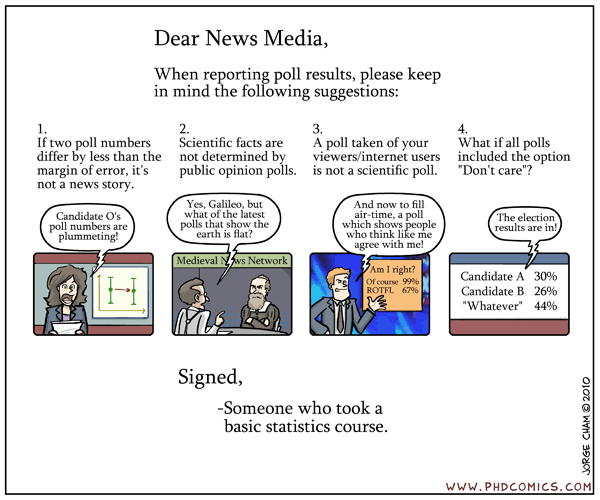Monday, March 22, 2010
Health Care Reform Passed the House of Representatives (again)… Now what?
Last night, the House Democrats voted to pass the Senate’s comprehensive health care reform bill. In the end the vote was 219-212. The vote, as expected, was pretty much along party lines. The Republicans all voted Nay and all Yea votes were from Democrats. However, 34 Democrats went against their party and voted Nay. Eric Kleefeld of Talking Points Memo put together a spreadsheet looking at how their districts and political ambitions may have affected their vote. The chart showed that 26 of the Representatives came from districts that voted for McCain in 2008.
The House then voted by a similar margin, 220-211, to pass a companion bill making several changes to Senate bill that were needed to gain enough support from the Democrats.
What Is Next?
In the immediate future, the Senate is expected to vote on the companion bill Tuesday. Since they will be attempting to pass this bill using reconciliation, a parliamentary process to reconcile House and Senate bills, the Senate will only need to pass it by a simple majority. Harry Reid has said that he has the necessary votes. The only other thing the bill needs to become law is President Obama’s signature.
Unfortunately or fortunately, depending on how you view it, this vote does not signal the end of the health care debate. The very next day, Republicans took the expected stance and promised they would work to repeal the legislation.
Many are looking even further into the future asking how the passage of this bill will effect the midterm elections in 2010. Will the bill still be a relevant platform for either party come this November?
Here's something I found amusing in all of this partisan debate. In today's political analysis, reports from both sides of the political spectrum have touted recent results of a Gallup poll (conducted early March) as proving that slightly more Americans were opposed to Obama’s health care plan than were for it. However, as a scientist, I have to point out that the margin of error for that specific poll (±4%) is larger than difference (3%), and therefore, the results don’t actually provide any conclusive information about public opinion.
Looking to this fall, Democrats believe some of the immediate changes from the bill’s passage will be a game changer. Obama is not wasting any time and will be selling this landmark legislation as a win for the Democrats right away. Republicans are expected to continue stressing that the bill was passed against the will of the people and emphasizing components they claim the majority of the public is against.
What Does This Mean for Women?
One reason I am a big proponent of women in politics is that their position enables them to have a voice for female interests in policy decisions. This monumental legislation offers an important opportunity to reduce some disparities that woman face in the health insurance market. This unfair treatment has been emphasized many times on the Senate and House floors. I was shocked when I learned that domestic abuse has been used as a pre-existing condition. Really?
Jezebel had an insightful take on where women will stand to gain or lose from these sweeping reforms. The article raises the major question of whether Nancy Pelosi, the first female Speaker of the House, sold-out women for a political victory. Do you agree with their take or have one of your own?
One major sacrifice the Democrats have seemed consistently willing to make is a woman’s right to choose. The National Organization for Women (NOW) made sure it was known that they were upset with President Obama’s anti-abortion executive order.
What Do I Think?
I agreed with Representative Stupack last night when he declared that the Republicans’ motion to recommit, which would result in the reincorporation of anti-abortion language, was “really to politicize life, not prioritize life." But this is a sentiment I have felt for the entirety of the reform process. I believe the debate has been oversimplified to narrow issues, such as abortion, and consequently, overlooked the bigger picture that, in the current system, a single illness or accident can destroy the average Americans' medical and financial stability.
Insurance companies are no longer in the business of keeping us healthy, but instead of making money by arguing over every itemized charge. I’ll never forget the time when I was in third grade and my dad had to fight to get the insurance company to cover the stitches I needed in my head. No really… I was gushing blood. IT WAS AN EMERGENCY.
All the wasted time and energy Americans dedicate to health care concerns could be better spent working to maintain our competitiveness in the world. All the money spent to treat illnesses on the rise would be greatly reduced if we instead focused on more prevention. In my opinion, this bill is about creating a healthier and more productive future for America. Do I think this specific bill will work? I think only time will tell. I like some parts and don't like others.
What do you think?
3 comments:
Commenting is now open, but we'd love it if you chose one username so other commenters can get to know you. To do this, select "Name/URL" in the "Comment as" drop down. Put the name you'd like others to see; the URL is optional.
Any profanity, bigotry, or synonyms for "[ ] sucks!" will be deleted. We welcome criticism as long as you're making a point!
Subscribe to:
Post Comments (Atom)





I think you took the most favorable poll in the the most favorable time frame to get the main thesis of your argument. The polls taken over the past week are overwhelmingly negative towards HCR in its current version. The numbers I see are pretty consistently 59ish% against and 39ish% for. Sources: CNN, NBC, Fox News (I'll surrender bias on the last one, but it's still consistent with the other two sources).
ReplyDeleteHey Anonymous,
ReplyDeleteThanks for dropping by! It appears my point was not clearly made, thanks for pointing that out to me. I’ll add a little clarification at the end to clear it up.
Just so you understand what I was trying to say, I agree that polls vary widely in the numbers they show. I recognize that results can depend on recent events and how questions are asked. FYI, the ‘reports’ using this data were from a variety of points of view ranging from NPR (http://www.npr.org/watchingwashington/2010/03/just_how_unpopular_is_the_heal.html) to insurancenewsnet.com (http://insurancenewsnet.com/article.aspx?id=173818&type=newswires), and yes they are all referring to the data from March 9 on Monday March 22nd.
I was not actually trying to argue any important part of the ‘thesis’ with the data. I was not trying to say victory or defeat based on the numbers, which is why I only pointed to one set of numbers. I’m personally not a huge fan of polls as anything more than a benchmark. I was simply pointing out that we should all think about where data comes from in our news sources since it does not always prove the point they are claiming it does.
I was not saying the poll proved the majority were either for or against health care reform. I simply was saying that the poll data being cited by news sources as absolute fact didn’t prove ANYTHING.
Feel free to throw up some recent polls you find interesting if you’d like. We’d love to hear more about your take. I’m definitely always open to learning about other viewpoints.
And thanks again for pointing that out!
I don't believe in polls as a general rule, hut here's Ezra Klein on a pre/post-HCR Gallup poll--love it!
ReplyDeletehttp://voices.washingtonpost.com/ezra-klein/2010/03/poll_health-care_reform_more_p.html